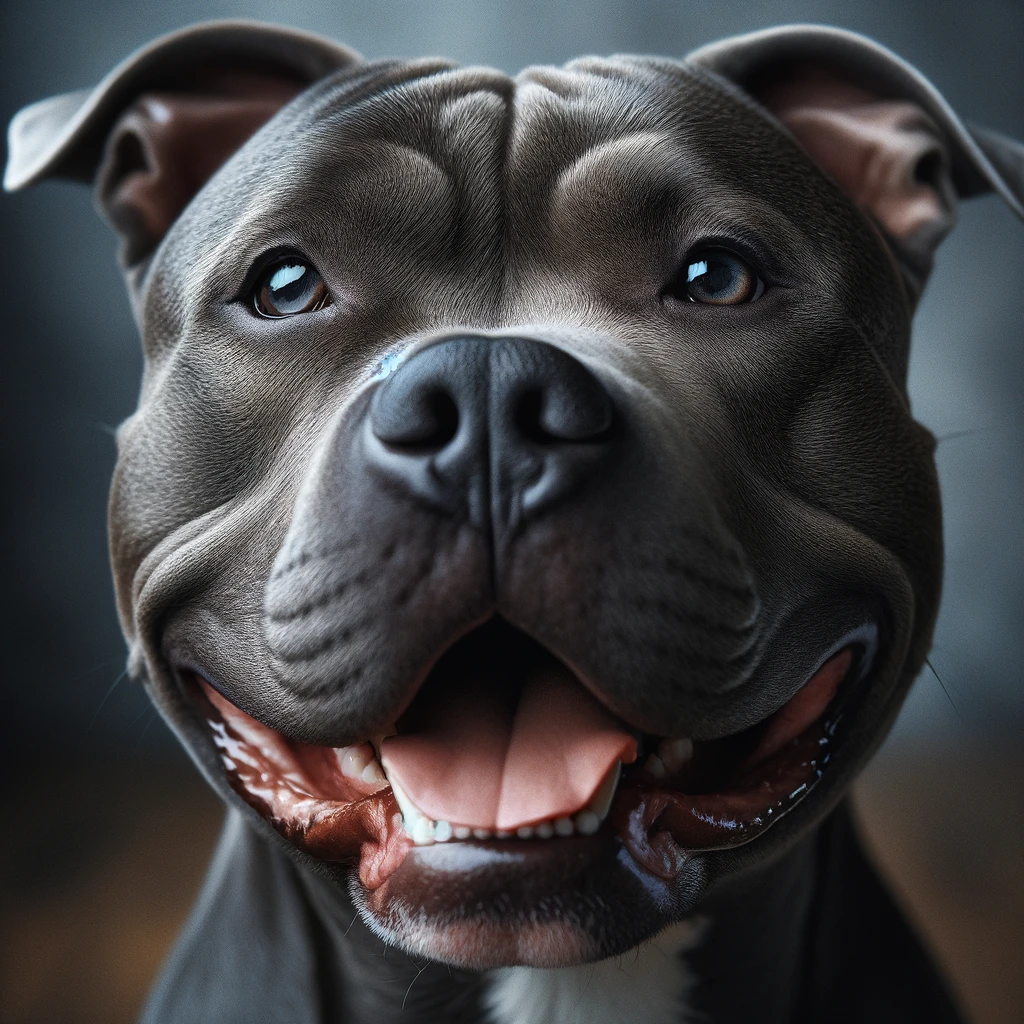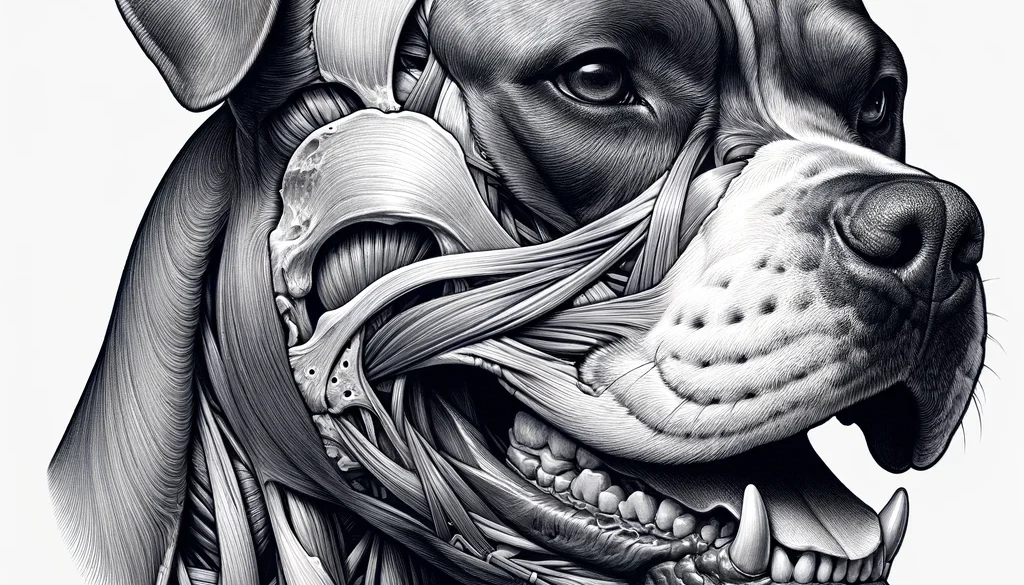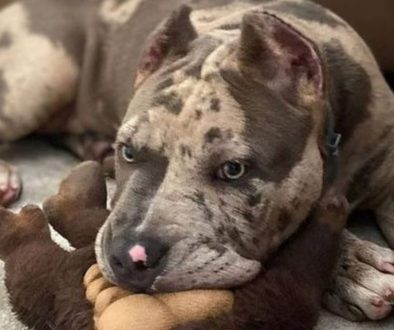Do Pitbulls’ Jaws Lock? Busting the Myth with Science
If you’ve ever found yourself wondering whether pitbulls’ jaws lock, you’re not alone. This question has sparked debates and discussions among dog lovers and skeptics alike. The myth of pitbulls having a “locking jaw” mechanism is widespread, but what’s the truth behind it? The short answer is veterinary professionals and animal behaviorists have consistently refuted the idea of pit bulls having locking jaws.
Tracing back to their history as bull-baiting dogs, pitbulls were admired for their tenacity and strong bite force. It’s easy to see how these traits led to misconceptions about their jaws locking. However, it’s crucial to separate fact from fiction when discussing the capabilities of these often misunderstood dogs. Let’s dive into what really happens when a pit bull bites down.
Do Pit Bulls Jaws Lock
When the question, Do Pitbulls Jaws Lock finds its way into discussions about dog breeds, especially the American Pitbull Terrier, it’s crucial to address the misconception with facts and scientific evidence. The idea that Pitbulls or any other pit bull type dogs possess a locking jaw mechanism is one of the most enduring myths surrounding this breed. However, as someone deeply immersed in understanding animal behavior and breed characteristics, I’m here to clarify why this belief doesn’t hold water.
Firstly, let’s talk about the bite force of Pitbulls compared to other dog breeds. It’s true that Pitbulls have a strong bite; their muscular build and jaw strength give them the ability to hold onto objects with considerable force. However, this characteristic isn’t unique to Pitbulls. Breeds like German Shepherds and even smaller breeds have their specific bite strengths that, in controlled studies, have shown varying degrees of force. The notion of a locking jaw in Pitbulls suggests a physiological mechanism in their temporomandibular joint that doesn’t exist in reality.
The confusion may stem from witnessing a Pit Bull’s tenacity and powerful grip. However, scientific evidence confirms that no breed, has any physiological locking mechanism in their jaws. Their so-called strong jaws are a result of their build and training but do not mechanically lock.
In discussing dog breeds and their capabilities, it’s essential to rely on accurate information. Misconceptions like the locking jaw myth can contribute to unfounded fear and biases against these dogs. Pitbulls, like any dog, when properly trained and cared for, showcase a behavior far from the aggressive caricatures often painted by society. Their strong bites are a natural trait, akin to other dogs with powerful jaws, and not indicative of a disposition to injure humans or other animals.
Understanding and debunking myths like these help in promoting a more informed and compassionate approach towards Pit Bulls and other dog breeds.
Understanding Pit Bulls’ Bite

In my years of exploring and debunking myths surrounding dog breeds, particularly pitbulls, I’ve uncovered some fascinating facts about their bite. This section aims to dig deeper into the anatomy of a pit bull’s jaw and their bite force, revealing truths that dispel the notion of “do pitbulls jaws lock”.
Anatomy of a Pit Bull’s Jaw
When I first encountered the claim that American Pit Bull Terriers possess some unique “locking mechanism” in their jaws, I was intrigued and prompted to investigate further. Turns out, the anatomy of a pit bull’s jaw doesn’t differ from that of other dog breeds. They sport the same temporomandibular joint found in all canines, which permits movement but does not include any feature designed to lock.
This revelation highlights a significant misconception surrounding pitbulls and their behavior. Contrary to popular belief, the strong jaws of Pit Bulls, Staffordshire Bull Terriers, and other pit bull type dogs aren’t anatomically equipped to lock down in a bite any more than other breed. This points to the importance of relying on scientific evidence rather than perpetuating myths.
Bite Force of Pit Bulls
Discussing the bite force of pitbulls unveils more about why they’re often mistakenly thought to have locking jaws. Indeed, pitbulls have a strong bite, with studies suggesting that their bite force can be formidable. However, it’s essential to note that several other dog breeds exhibit similar or even higher bite strength. German Shepherds and Rottweilers, for instance, have been shown in controlled studies to possess a bite force that challenges, if not surpasses, that of pit bulls.
The notion of pitbulls having disproportionately dangerous bites is another myth needing clarification. While their bite force is notable, it doesn’t equate to a propensity to injure humans or other animals more than other dogs. The real issue at hand is proper training and behavior control, which applies to all dog breeds.
Delving into the anatomy of a pit bull’s jaw and analyzing their bite force compared to other breeds brings us closer to understanding these remarkable animals. It’s clear that misconceptions and unfounded fears have clouded the truth about pit bulls’ nature, leading to misinformation about their supposed locking jaws and overall demeanor. Acknowledging the science behind their bite and behavior can foster a more informed and compassionate stance towards pitbulls and other dog breeds alike.

Debunking the Myth of Jaws Locking
The belief that pit bulls, or more accurately American Pit Bull Terriers, have a unique “locking jaw” mechanism has circulated widely, contributing significantly to the breed’s controversial reputation. In this section, I’ll delve deep into the facts, backed by scientific evidence and expert opinions, to unravel the truth behind this myth.
Scientific Explanation
When discussing do pitbulls jaws lock, it’s essential to start with the anatomy of the pit bull’s jaw compared to other dog breeds. Scientific studies focusing on the temporomandibular joint, the key element allowing jaw movement in dogs, have shown that there is no difference in this joint’s structure between pit bulls and other breeds. This effectively debunks the myth of a unique locking mechanism in pit bulls. Their jaws operate just like any other dog’s, capable of biting and releasing without any form of locking or clamping mechanism. Furthermore, controlled studies on bite force across multiple dog breeds have placed pit bulls well within the range of bite strength demonstrated by other dogs, like German Shepherds and Rottweilers, with no evidence to suggest they possess a stronger bite or locking jaws.
Expert Opinions
Their extensive experience with a wide variety of dog breeds offers a crucial perspective on the matter. Experts argue that labeling pit bulls or any pit bull type dogs as disproportionately dangerous due to a mythical locking jaw not only misrepresents the breed but also detracts from the more important issues of proper training and socialization. Many professionals emphasize that, like all dog breeds, pit bulls display a range of behaviors and, when properly trained and cared for, they are no more likely to injure humans or other animals than any other dog. The real issue at hand is not an anatomical anomaly but rather the need for responsible ownership and understanding of dog behavior, regardless of the breed.
In the world of dog breeds, myths like locking jaws in pit bulls persist, overshadowing the truth and contributing to unfounded biases. By leaning on scientific evidence and listening to Expert Opinions, it’s clear that the pit bull’s reputed locking jaw is nothing more than a myth. Proper education, awareness, and responsible pet ownership are key in shifting the narrative and ensuring all dogs, regardless of breed, are given a fair chance at leading a happy, safe life alongside humans.

Factors Affecting Pit Bulls’ Bite Strength
When discussing do pitbulls’ jaws lock or the strength of their bite, it’s crucial to consider various factors that contribute to the overall bite force in pit bulls, as well as in other dog breeds. The myth surrounding the locking jaws of pit bulls often overshadows the factual aspects shaping their bite potency.
Firstly, genetics plays a significant role. The American Pitbull Terrier, along with other breeds like the Staffordshire Bull Terrier, was bred for physical activities requiring strength, including the historically brutal task of bull-baiting. This heritage may contribute to their strong bite. However, it’s worth mentioning that controlled studies have shown that pit bulls do not have a bite force significantly stronger than other dogs like German Shepherds. The strength of a dog’s bite, pit bull, or otherwise, often reflects its breed’s historical purpose.
Another critical factor is training. A properly trained pit bull, or any dog for that matter, is less likely to use its bite inappropriately. Training influences not only the use but potentially the control of a dog’s bite. While the pit bull’s jaw is no different in its locking mechanism—as there is none—compared to other dog breeds, how a dog is trained can dramatically affect its behavior, including biting.
Physical health and the condition of a dog’s temporomandibular joint can also affect its bite force. This joint works the same across virtually all dog breeds, allowing for the opening and closing of the jaw. A healthy pit bull without conditions like Tetanus, which can cause muscle spasms and affect jaw movement, will have a typical bite force for its size and build.
Lastly, the environment and how a pit bull, or any dog, is raised and treated by humans plays a significant role. Dogs exposed to aggressive behavior, or those not socialized properly, are more likely to exhibit stronger and more uncontrolled biting behavior. It’s not solely about the dog’s breed but how they’re nurtured and the behaviors they’ve learned from their surroundings.
Pit Bulls’ Bite Versus Other Dog Breeds

In the ongoing discussion about whether do pitbulls’ jaws lock, it’s crucial to understand how the bite force and jaw structure of American Pit Bull Terriers compare to other dog breeds. Let’s delve into the scientific evidence and debunk myths surrounding pit bulls and their bite.
Comparison of Bite Force
When comparing bite force, one common misunderstanding is that pit bulls possess a strong bite that is disproportionately dangerous compared to other dogs. However, controlled studies show that’s not the case. For instance, the bite force of a German Shepherd is approximately 238 PSI (pounds per square inch), which is slightly stronger than that of a pit bull.
Comparison of Jaw Structure
Diving deeper into the myth of the locking jaw, it’s essential to understand the jaw structure of pit bulls in comparison to other breeds. The idea that pit bulls have a unique temporomandibular joint allowing them to lock their jaws is pure fiction. A study by Jesse M. Bridgers III from Presbyterian College titled “Mechanical Advantage in the Pit Bull Jaw” examined 49 skulls from various dog breeds, including pit bulls, and found no evidence of a mechanical advantage in the pit bull compared to other domestic breeds.
Dr. I Lehr Brisbin of the University of Georgia emphatically stated there is “absolutely no evidence for the existence of any kind of locking mechanism unique to the structure of the jaw and/or teeth of the American Pit Bull Terrier.” This statement supports the reality that pit bulls, like any other dog breed, do not possess a locking jaw.
When considering adopting a pit bull, understanding the truth about their bite and jaws is crucial. The breed’s reputation for having strong jaws capable of locking is based on myth rather than reality. In reality, pit bulls have been bred for various purposes that require strength, but their physical abilities do not include locking their jaws.
Properly trained and socialized pit bulls, Staffordshire bull terriers, and other pit bull-type dogs are no more inherently aggressive or dangerous than other dog breeds. Their behavior, like that of any other dog, greatly depends on their training, socialization, and the environment in which they are raised.
Conclusion
Dispelling the myth of the pit bull’s “locking jaw” has been crucial in fostering a better understanding of this misunderstood breed. I’ve explored the factors influencing bite force and compared pitbulls to other breeds, revealing that their strength is not out of the ordinary. It’s clear that genetics, environment, and training play significant roles in a dog’s behavior and capabilities. The key takeaway? Pitbulls, like any other dog breed, require responsible ownership and compassionate care. By focusing on proper training and debunking harmful myths, we can ensure that pitbulls and all dogs have the opportunity to live harmoniously with humans. Let’s move beyond misconceptions and work towards a future where every dog is judged by its character, not its breed.
Frequently Asked Questions
Do pit bulls have a “locking jaw” mechanism?
Pit bulls do not have a “locking jaw” mechanism. This is a myth that has been debunked by scientific evidence. Studies have shown that the jaw structure of pit bulls is no different from that of other dog breeds.
What factors contribute to the bite force of a dog?
The bite force of a dog can be influenced by several factors, including genetics, training, physical health, and the environment in which the dog is raised. The dog’s breed history and the purpose for which it was bred can also affect its bite strength.
Are pit bulls’ bites stronger than other breeds?
Controlled studies have shown that pit bulls do not have a significantly stronger bite force compared to other breeds like German Shepherds and Rottweilers. The strength of a dog’s bite often correlates with the breed’s historical purpose rather than the breed itself.
How can responsible ownership affect a dog’s behavior?
Responsible ownership, including proper training and understanding of dog behavior, is crucial for ensuring that all dogs, regardless of breed, lead happy, safe lives alongside humans. Dogs that are well-cared for and properly trained are less likely to display aggressive behaviors.
Is the temperament of a pit bull reliable?
Yes, when well managed and responsibly owned, pit bulls can have stable and reliable temperaments. They are known to be among the breeds with the best temperaments, comparable to that of golden retrievers, according to the American Canine Temperament Test Society.

Mandy has lived with pitbulls her whole life, and she has amassed a wealth of experience and knowledge about these magnificent animals. Having had the pleasure of owning and caring for numerous pitbulls over the years, she has come to understand their unique characteristics, behaviors, and needs. Read more



























































